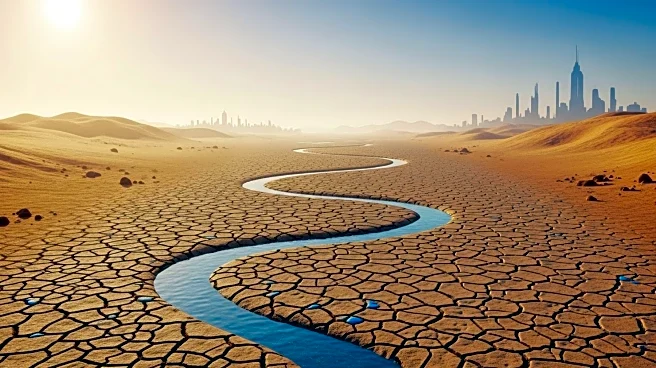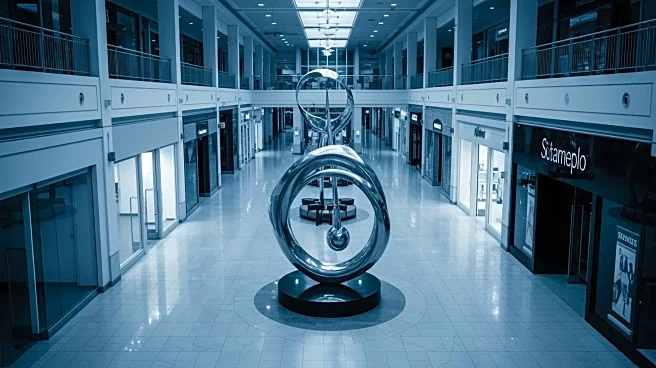What is the story about?
What's Happening?
Iran is facing a severe water shortage and drought, prompting discussions about relocating the capital from Tehran. President Masoud Pezeshkian has indicated that Tehran's status as the capital may change due to the city's ongoing water crisis and over-expansion. The water shortage has been exacerbated by climate conditions and urban development, leading to significant challenges for residents and the government. The situation has reached a critical point, with measures being considered to address the water scarcity and its impact on the city's infrastructure and population.
Why It's Important?
The potential relocation of Iran's capital from Tehran highlights the severe impact of environmental issues on urban planning and governance. Water scarcity poses significant challenges to the city's sustainability and the well-being of its residents. The situation underscores the need for effective resource management and infrastructure development to address environmental challenges. The decision to move the capital could have wide-ranging implications for Iran's political and economic landscape, affecting government operations and regional development strategies.
What's Next?
Iran may explore alternative locations for the capital, considering factors such as water availability, infrastructure, and economic viability. The government is likely to implement measures to mitigate the water crisis, including investments in water conservation and management technologies. The relocation process, if pursued, will involve significant planning and coordination among various stakeholders, including government agencies and urban planners. The international community may offer support and expertise to assist Iran in addressing its environmental challenges.
Beyond the Headlines
The water crisis in Tehran reflects broader environmental and climate challenges facing urban areas globally. The situation may prompt discussions on sustainable urban development and the importance of integrating environmental considerations into city planning. The cultural and social implications of relocating the capital may influence public sentiment and national identity, as Tehran has historically been a central hub for political and cultural activities in Iran.















